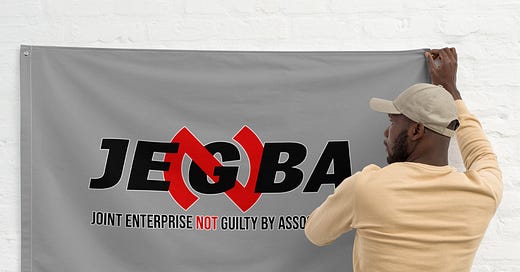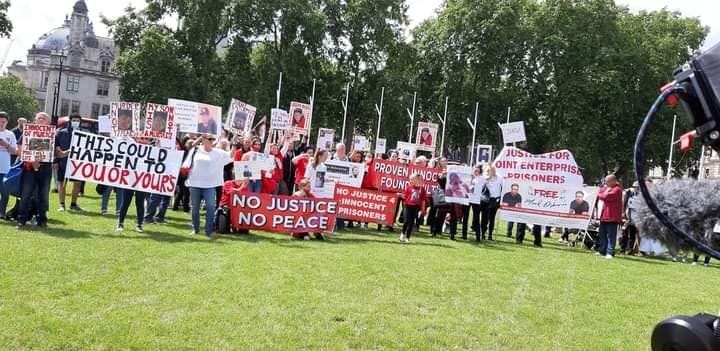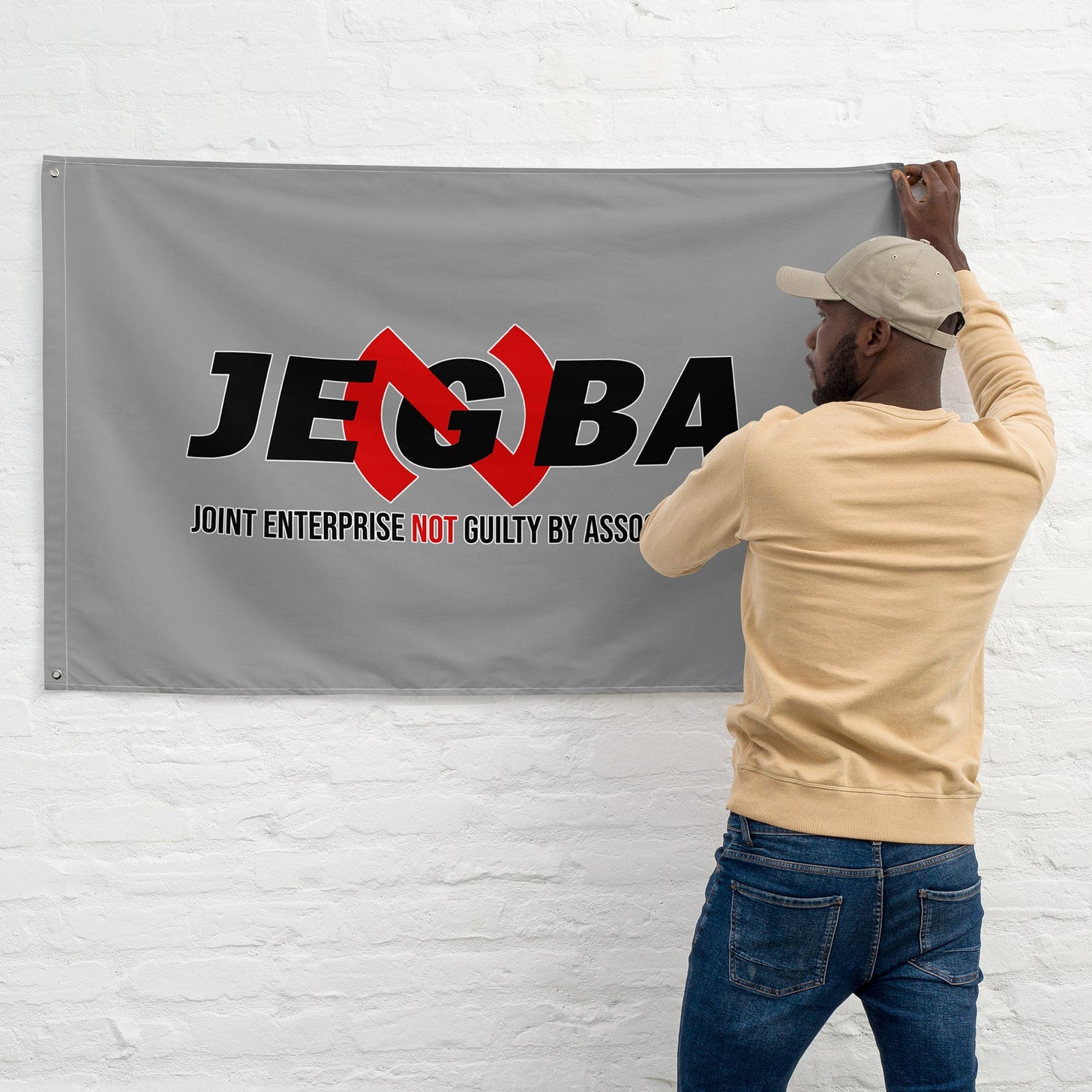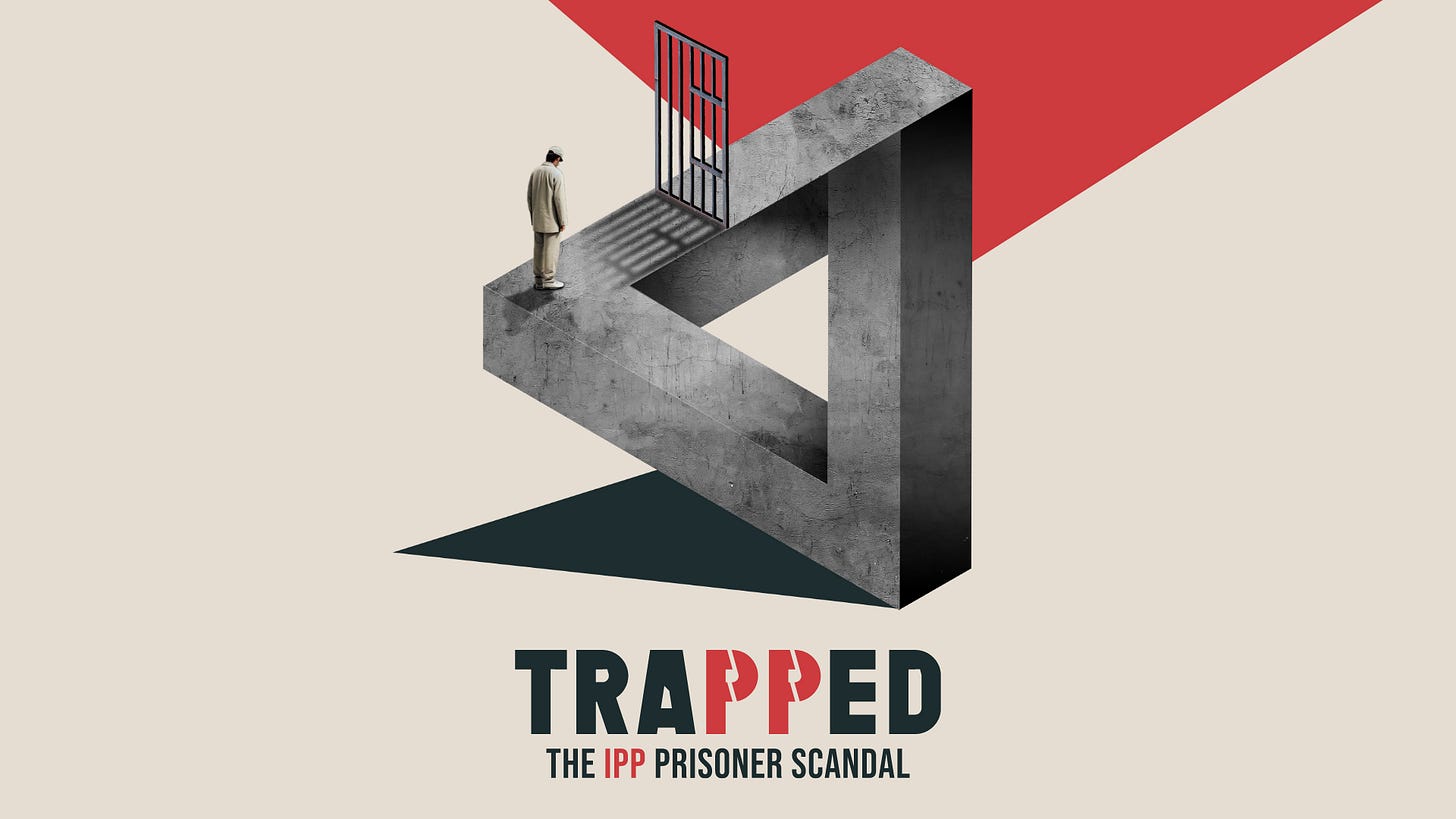Joint Enterprise: An Investigation
Convicted for ‘encouraging’ crime: is the ‘Joint Enterprise’ law working?
The following text is a pitch my exec producer and I made to the BBC Radio 4. We didn't get the commission and it's unlikely it will get made in this exact form as the delays mean I have missed much of the story. However I believe the facts of the case deserve more attention.
I realise by publishing it here that another journalist could take the pitch as their own and being more established/famous would be more likely to get a commission but don't do that please, it's unprofessional. [Update 11/08/24 - Someone at the Guardian did this the week after I published]
*I've changed the names of the victim, police officer, convicted prisoners and their lawyer who I spoke to for a couple of hours earlier this year.
We are still in touch so I hope to be able to do something on the case anyway. It troubles me that they are still languishing in prison and will be for decades to come, for what I and their lawyers believe to be unjust punishment.
Convicted for ‘encouraging’ crime: is the ‘Joint Enterprise’ law working?
In 2017, eleven young men were convicted in Manchester Crown Court and Preston Crown Court for the ‘gang’ murder of Moss Side teenager *Ali Saeed for a collective prison term of 168 years. Mr Saeed was kicked, stabbed and hit with a hammer after an evening rush-hour chase through the Moss Side area of the city in May 2016.
Now three of the defendants, *Emmanuel, Edward and Adam, 17, 18 and 19 at the time they were imprisoned are attempting to appeal their conviction. They were convicted under the law of joint enterprise, which enables several people to be charged with the same offence even though they may have played very different roles. None of them were particularly friendly with *Ryan Ash, of no fixed abode, who stabbed *Ali Saaed. They just all happened to be in the same park in front of Millenium Powerhouse, that day as matters escalated.
Joint enterprise is used to prosecute someone who intentionally “assists or encourages” an offence. If found guilty, they are punished as harshly as if they had been the principal offender. The problem is that joint enterprise is used in a much wider way, often convicting people who have made no significant contribution to a crime.
They faced a "false" and "racist gang narrative" at their trial, their legal team has said as they fight to clear their names. Adam who according to his lawyers was training to be a professional footballer and spent little time in Moss Side was jailed for life with a minimum of 19 years.
Moss Side Youth Worker, Charlotte knew some of the boys convicted, provided a character reference, writing, “The joint enterprise murder charge seems inappropriate and unfair, and, in my opinion, has the potential to be a miscarriage of justice.”
For *Radio 4, reporter Sam Asumadu will investigate how these three young men got swept up by one of England's most controversial laws. In so doing, she’ll go over new evidence, discrepancies in the court case and examine how institutional bias and ‘racism’ may have played a part in the controversial law that convicted them.
‘Joint enterprise’ has been on the statute books for centuries, but it escalated in use in the early 2000s, around the time New Labour was pursuing it’s ‘Tough on Crime’ political agenda. In a landmark ruling in 2016, the Supreme Court found that the laws on joint enterprise had taken a “wrong turn” 30 years earlier, meaning that people had been found guilty of the most serious of offences on the weakest of legal basis. Mere foresight of what someone else might do was now enough to convict under this law.
In those 30 years, Joint enterprise has been increasingly used in what police deem ‘gang-related’ offences with people only peripherally involved or bystanders, who did not themselves engage in any violence sentenced alongside those who assaulted or killed other people.
Campaigners hoped that the ruling would reduce the unjust use of joint enterprise powers. However, research conducted by the Centre for Crime and Justice Studies in 2023, found that the Supreme Court ruling has had little to no effect on charges or convictions. In fact there has been an increase in the number of murder cases involving four or more defendants.
*With a general election looming, and a possible change in government, Labour will find they are increasingly being asked to look back at the legacy of their criminal justice policies and look to the future of what they can and must get right this time.
Sam will meet *Lionel Digby KC part of the legal team representing Emmanuel, Edward and Adam, who spent over two years collecting new evidence for the Criminal Cases Review Commission (CCRC) to discuss his findings. Lionel says, “there needs to be a culture shift, from police, CPS onwards. The damage that has been done is incalculable. Lives have been destroyed.” He is adamant that there has been a miscarriage of justice, and the boys are of good character.
In court the supposed ‘gang’ expert, Greater Manchester PC, *Nick Robbins spun a misleading narrative, harking back to Moss Side days of the 80s and 90s when it was nicknamed ‘Gunchester”, drawing on tales of American gangs, the ‘Bloods and Crips’ which the two main gangs in the 80s where fashioned after.
But Moss Side today looks very different to the Moss Side of the late 20th century, where gang violence, sparked off by competition for control of the extremely lucrative drug trade was a common place occurrence.
Whilst things began to change in the late 90s when Manchester Council made a concerted effort to encourage families and young professionals to live there, in 1981 tensions broke into violent riots between Moss Side residents and the police. It's with this legacy and historical memory that young people have to navigate their interactions with the police.
In 2017 the Lammy review into the treatment and outcomes of Black, Asian and Minority ethnic youth in the criminal justice system found that young people, particularly black boys and men tend to be stereotyped as belonging to gangs, that they were more likely to be tried in the Crown Court than their White equivalents and that BAME defendants were more likely than White defendants to receive prison sentences for certain crimes.
The review recommended a reform of Joint Enterprise laws: whilst there's little controversy over a ‘principal’ or ‘co-principal’ offender, ‘secondary’ offenders are where the law gets muddy. Did they ‘assist’ or ‘encourage’ the crime? And what does that actually mean in practice?
Wanting to address these issues, Kim Johnson MP's private members ‘significant contribution’ bill to reform Joint Enterprise had its second reading in the Commons on 2nd February 2024. The bill reading was adjourned until June ‘24, but won't be going any further. Instead, it has been proposed as an amendment to the *Criminal Justice bill which is making its way through parliament now.
Nonetheless it has already given the benefit of getting Labour to state a position on the record. Shadow Youth Justice Minister Janet Daby said, “Labour has previously said that it would look to reform joint enterprise, and that remains our ambition. Furthermore, the Lammy review in 2017 advocated for the reform of joint enterprise laws.” Following that up by mention of the CPS and gathering more data.
There were further signs of consensus across the aisle when Conservative MP Robert Butler spoke, “Joint enterprise is an important and valuable concept, but at the moment its application is undermining that value and carries the risk of diminishing confidence in our justice system”.
Legal scholars and campaigners such as Jan Cunliffe, co-founder of JENGbA (Joint Enterprise Not Guilty by Association) who’s legally blind son was convicted of murder by Joint Enterprise laws in 2008 have said that the Police and Crown Prosecution Service (CPS) overcharge in order to create pressure on defendants to plead guilty at the plea bargaining stage and that convictions have relied on prosecutors utilising myths, class based stigmas and racist stereotypes such as the type of music they listen to or produce, to prove guilt.
And on the flip side, duelling defence lawyers have turned on each other's clients in defence of their own client.
Back to the Moss Side convictions, and we hear how a rap music video posted on YouTube in 2014, entitled Active Only (a Moss Side slang term, for being out and about) which three of the defendants were in, was used as a key piece of evidence in the prosecutions’ case.
The video’s production was organised by Manchestarz at Millenium Powerhouse, led by Kemoy Walker, an award-winning youth worker and Manchester City Council Ambassador. He is bewildered by the video being used as evidence to convict the boys as their work was publicly funded by Greater Manchester Police (GMP) amongst others to engage young people in music.
On the 2nd February in Parliament Janet Daby said “The Government must end the criminalisation of children and young people associated with rap and drill music, and put in place protective factors to ensure that they are not disproportionately criminalised under joint enterprise.”
This background, largely missing at the trial, is now a key part of the 189-page application by Lionel Digby KC and his team to the Criminal Cases Review Commission. He has had 2 meetings with them so far. Has another in late March and expects a decision in May ‘24.
This will be a timely investigation, which opens a window into an under interrogated area of our criminal justice system in a crucial year for both Joint Enterprise laws and the Labour Party.
So there you have it. The program never got made but we do expect to commence work on a short podcast series about Joint Enterprise later this year.
Subscribe to the Trapped substack to get updates.
As always you can and should catch up with the latest episodes of Trapped: The IPP Prisoner Scandal. Listen here.






